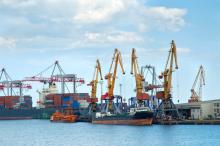A Model for calculating Interconnection Costs in Telecommunications (PPIAF)
This guidebook provides a sound methodology to help regulators and telecommunications operators adopt a tariff regime and deal with interconnection disputes on the basis of a rigorous cost model.
Find more at Telecommunications / Information & Communication Technology PPPs
Image by Pixabay
Ref: WB - Model Calculating Intercommunication Costs Telecoms 2004
